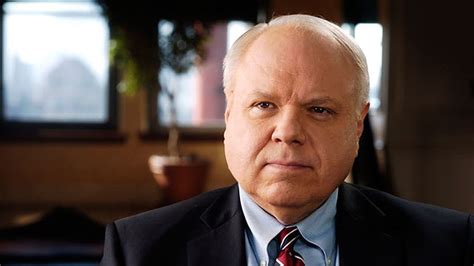Top 386 Unwilling Quotes & Sayings - Page 7
Explore popular Unwilling quotes.
Last updated on April 16, 2025.
Men are anxious to improve their circumstances, but are unwilling to improve themselves; they therefore remain bound. The man who does not shrink from self-crucifixion can never fail to accomplish the object upon which his heart is set. This is true of earthly as of heavenly things. Even the man whose object is to acquire wealth must be prepared to make great personal sacrifices before he can accomplish his object; and how much more so he who would realize a strong and well-poised life.
She would have liked to know how he felt as to a meeting. Perhaps indifferent, if indifference could exist under such circumstances. He must be either indifferent or unwilling. Has he wished ever to see her again, he need not have waited till this time; he would have done what she could not but believe that in his place she should have done long ago, when events had been early giving him the indepencence which alone had been wanting.
Slavery, you know, is nothing else than the unwilling labor of many. Therefore to get rid of slavery it is necessary that people should not wish to profit by the forced labor of others and should consider it a sin and a shame. But they go and abolish the external form of slavery and arrange so that one can no longer buy and sell slaves, and they imagine and assure themselves that slavery no longer exists, and do not see or wish to see that it does, because people still want and consider it good and right to exploit the labor of others.
The great multinationals are unwilling to face the moral and economic contradictions of their own behavior - producing in low-wage dictatorships and selling to high-wage democracies. Indeed, the striking quality about global enterprises is how easily free-market capitalism puts aside its supposed values in order to do business. The conditions of human freedom do not matter to them so long as the market demand is robust. The absence of freedom, if anything, lends order and efficiency to their operations.
If we can't think for ourselves, if we're unwilling to question authority, then we're just putty in the hands of those in power. But if the citizens are educated and form their own opinions, then those in power work for us. In every country, we should be teaching our children the scientific method and the reasons for a Bill of Rights. With it comes a certain decency, humility and community spirit. In the demon-haunted world that we inhabit by virtue of being human, this may be all that stands between us and the enveloping darkness.
If we look to the answer as to why for so many years we achieved so much, prospered as no other people on earth, it was because here in this land we unleashed the energy and individual genius of man to a greater extent than has ever been done before. Freedom and the dignity of the individual have been more available and assured here than in any other place on earth. The price for this freedom at times has been high, but we have never been unwilling to pay that price.
A willing, cheerful worker, with his heart in his job, will turn out more work and more satisfactory work in 44 hours than an unwilling worker, dissatisfied with his conditions, will turn out in 54 hours. It is good business, therefore, for every employer to go as far as he possibly can in reaching a schedule agreeable to his people.
The growing inequality of wealth and income distribution is both a moral and economic problem. If the wealthy are unwilling to pay more taxes, then this is going to lead to spending cuts. And if you put off the table things like national defense, then you're going to end up cutting more and more out of programs that aid the poor. So, I think there are consequences to this idea that tolerance for inequality requires us to - to just do nothing to make the wealthy contribute a higher share of resources to fund the government.
In those sticky summer nights in South London our windows stay open and our tiny apartment becomes our secret garden. The magic of the secret garden is that it exists in our imagination. There are no limits, no borderlines. The secret garden leads to the marigolds of Mogadishu and the magnolias of Kingston and when the heat turns us sticky and sweet and unwilling to be claimed by defeat we own the night. We own our bodies. We own our lives.
The trouble is with socialism, which resembles a form of mental illness more than it does a philosophy. Socialists get bees in their bonnets. And because they chronically lack any critical faculty to examine and evaluate their ideas, and because they are pathologically unwilling to consider the opinions of others, and most of all, because socialism is a mindset that regards the individual and his rights as insignificant, compared to whatever the socialist believes the group needs, terrible, terrible things happen when socialists acquire power.
I have been one acquainted with the night. I have walked out in rain - and back in rain. I have out walked the furthest city light. I have looked down the saddest city lane. I have passed by the watchman on his beat And dropped my eyes, unwilling to explain. I have stood still and stopped the sound of feet. When far away an interrupted cry Came over houses from another street, But not to call me back or say good-bye; And further still at an unearthly light, One luminary clock against the sky Proclaimed the time was neither wrong nor right. I have been one acquainted with the night.
Student loans have been helpful to many. But they offer neither incentive nor assistance to those students who, by reason of family or other obligations, are unable or unwilling to go deeper into debt. ... It is, moreover, only prudent economic and social policy for the public to share part of the costs of the long period of higher education for those whose development is essential to our national economic and social well-being. All of us share in the benefits - all should share in the costs.
One is seduced and battered in turn. The result is presumably wisdom. Wisdom! We are clinging to life like lizards. Why is it so difficult to assemble those things that really matter in life and to dwell among them only? I am referring to certain landscapes, persons, beasts, books, rooms, meteorological conditions, fruits. In fact, I insist on it. A letter is like a poem, it leaps into life and shows very clearly the marks, perhaps I should say thumbprints, of an unwilling or unready composer.
Political realism is aware of the moral significance of political action. It is also aware of the ineluctable tension between the moral command and the requirements of successful political action. And it is unwilling to gloss over and obliterate that tension and thus to obfuscate both the moral and the political issue by making it appear as though the stark facts of politics were morally more satisfying than they actually are, and the moral law less exacting than it actually is.
Many faculty retreated into academic specializations and an arcane language that made them irrelevant to the task of defending the university as a public good, except for in some cases a very small audience. This has become more and more clear in the last few years as academics have become so insular, often unwilling or unable to defend the university as a public good, in spite of the widespread attacks on academic freedom, the role of the university as a democratic public sphere, and the increasing reduction of knowledge to a saleable commodity, and students to customers.
That's an interesting paradox to think about. Make it legal and it's no good. Why? Because as long as it's illegal the people who come in do not qualify for welfare, they don't qualify for social security, they don't qualify for the other myriad of benefits that we pour out from our left pocket to our right pocket. So long as they don't qualify they migrate to jobs. They take jobs that most residents of this country are unwilling to take. They provide employers with the kind of workers that they cannot get. They're hard workers, they're good workers, and they are clearly better off.
If your experiences suggest to you that poor black folk are lazy, then you must be true to those experiences - except, however, as your experiences are pressured by empirical investigation of complex phenomena. I suspect that even when you control for variables of individual laziness, you'll see that what you see before you masses of black poor people unwilling to work hard to get better will not be as simply concluded as you might at first believe. Continue your good work.
I am now convinced that I have never been much in love; for had I really experienced that pure and elevating passion, I should at present detest his very name, and wish him all manner of evil. But my feelings are not only cordial towards him; they are even impartial towards her. I cannot find out that I hate her at all, or that I am in the least unwilling to think her a very good sort of girl. There can be no love in all this.
When Jesus invites sinners, 'Come to me, all who labor and are heavy laden, and I will give you rest,' he immediately adds,'take my yoke upon you, and learn from me' (Matt. 11:28-29). To come to him includes taking his yoke upon us, being subject to his direction and guidance, learning from him and being obedient to him. If we are unwilling to make such a commitment, then we have not truly placed our trust in him.
Suffer not yourselves to be betrayed with a kiss. Ask yourselves how this gracious reception of our petition comports with those warlike preparations which cover our waters and darken our land. Are fleets and armies necessary to a work of love and reconciliation? Have we shown ourselves so unwilling to be reconciled, that force must be called in to win back our love? Let us not deceive ourselves, sir. These are the implements of war and subjugationthe last arguments to which kings resort.
The believer's cross is no longer any and every kind of suffering, sickness, or tension, the bearing of which is demanded. The believer's cross must be, like his Lord's, the price of his social nonconformity. It is not, like sickness or catastrophe, an inexplicable, unpredictable suffering; it is the end of the path freely chosen after counting the cost. It is not, like Luther's or Thomas Muntzer's or Zinzendorf's or Kierkegaard's cross, an inward wrestling of the sensitive soul with self and sin; it is the social reality of representing in an unwilling world the Order to come.
We ask for what reason our Lord was unwilling to state the time of His coming (cf. Mk. 13:31-32). If we ask it, we shall not find it is owing to ignorance, but to wisdom. For it was not to our advantage to know; in order that we being ignorant of the actual moments of judgment to come, might ever be as it were on guard, and set on the watch-tower of virtue, and so avoid the habits of sin; lest the day of the Lord should come upon us in the midst of our wickedness.
Since trade ignores national boundaries and the manufacturer insists on having the world as a market, the flag of his nation must follow him, and the doors of the nations which are closed against him must be battered down. Concessions obtained by financiers must be safeguarded by ministers of state, even if the sovereignty of unwilling nations be outraged in the process. Colonies must be obtained or planted, in order that no useful corner of the world may be overlooked or left unused.
Let's say you want to do a job, and you want to be really successful. You want to rise really high in that career. But where you live, that job doesn't exist. Your town's too small. Or maybe the business is your town, but even if you reach the pinnacle there, because it's a small town, it's not nearly as high as you could go. If you're unwilling to move, well, that's all on you. That's a limitation you're placing on yourself. Now, that's fine if that's what makes you happy.
Practice can be stated very simply. It is moving from a life of hurting myself and others to a life of not hurting myself and others. That seems so simple-except when we substitute for real practice some idea that we should be different or better than we are, or that our lives should be different from the way they are. When we substitute our ideas about what should be (such notions as "I should not be angry or confused or unwilling") for our life as it truly is, then we're off base and our practice is barren.
Sanity, as the project of keeping ourselves recognizably human, therefore has to limit the range of human experience. To keep faith with recognition we have to stay recognizable. Sanity, in other words, becomes a pressing preoccupation as soon as we recognize the importance of recognition. When we define ourselves by what we can recognize, by what we can comprehend- rather than, say, by what we can describe- we are continually under threat from what we are unwilling and/or unable to see. We are tyrannized by our blind spots, and by whatever it is about ourselves that we find unacceptable.
























